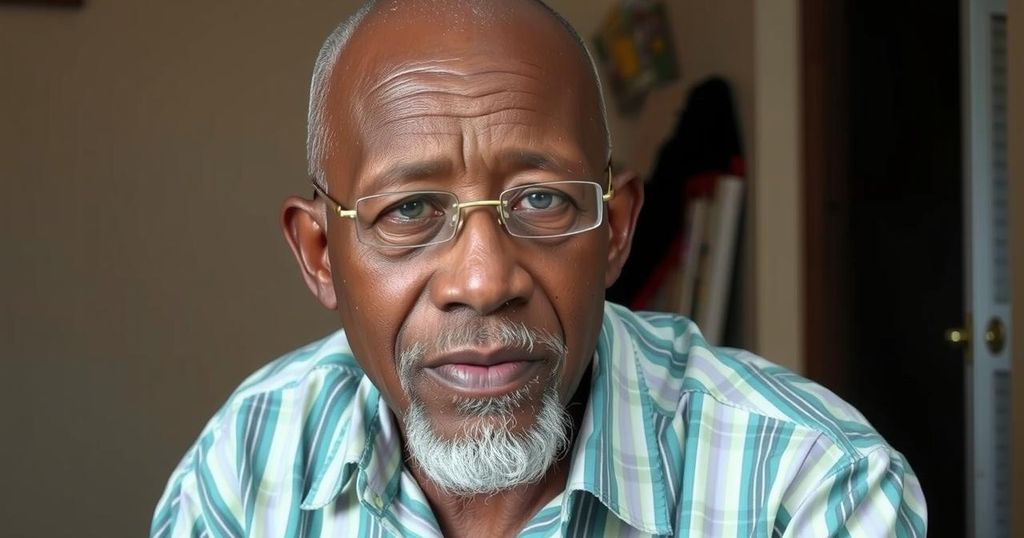Crime
AFRICA, AMERICA, BOSTON, CANTON REPOSITORY, COURT CASE, COURT SENTENCING, CRIME, DEATH PENALTY, DONALD L. CABELL, ERIE NSHIMIYE, GOODYEAR TIRE & RUBBER, JUSTICE, KANSAS, KERNS, LEGAL SYSTEM, MASSACHUSETTS, MO, MOAKLEY, NORTH AMERICA, NSHIMIYE, REPOSITORY, RWANDA, STARK COUNTY, U. S, U. S. JUSTICE DEPARTMENT, UNITED STATES, WICHITA, YOUNGSTOWN
Amira Khan
0 Comments
Stark County Man Awaiting Trial for Alleged Involvement in Rwandan Genocide
Eric Nshimiye, a U.S. resident facing trial for alleged past involvement in the 1994 Rwandan genocide, maintains his innocence against charges of perjury and obstruction of justice related to his immigration process. His trial reflects ongoing debates about justice, historical narratives, and the complexity of past conflicts as it potentially paves the way for his deportation back to Rwanda, where he could face further serious allegations.
The fate of Eric Nshimiye, a Stark County resident and seasoned Goodyear Tire & Rubber engineer, hangs in the balance as he awaits trial on allegations stemming from events during the 1994 Rwandan genocide. After his arrest on March 21, Nshimiye has been held in custody while facing charges of perjury and obstruction of justice due to allegedly lying about his involvement in the atrocities during his immigration process. With an absence of direct charges relating to the genocide, the U.S. Justice Department claims Nshimiye misrepresented his past to gain entry into the United States. Should Nshimiye be convicted, he may face deportation to Rwanda, where he could be charged with serious crimes, compounding the urgency of proving his innocence before the court. Despite the grave accusations, his defense attorney asserts that Nshimiye is not on the radar of the Rwandan government’s list of genocide suspects.
Substantial evidence is required for the prosecution to substantiate their claims, including alleged witness testimony against Nshimiye. His defense centers around the objective of proving his non-involvement in the genocidal acts, leveraging records that could corroborate his presence in a different country during the period of the massacre. A notable public sentiment from Nshimiye’s community reveals a strong belief in his character, as family, friends, and colleagues contend that he has been falsely accused.
In a broader context, the ongoing discussions surround the interpretation of the Rwandan genocide narrative, with experts like Professor Susan Thomson calling for a nuanced understanding of the events. She suggests that the portrayal of Rwandan Hutus as solely the aggressors is an oversimplification of a complex historical event. This case not only addresses the personal plight of one individual but also resonates within the larger dialogue of historical narratives and justice.
The article highlights the case of Eric Nshimiye, who was arrested under allegations connected to the Rwandan genocide that claimed approximately 800,000 lives in a span of 100 days. Charged with perjury and obstructing justice instead of direct murder or rape, Nshimiye’s situation exemplifies the complexities of proving involvement in historic crimes. His upcoming trial in Boston is laden with implications that could result in his deportation to Rwanda, thus raising significant questions not only about his past but also about the justice system’s treatment of immigrant narratives tied to geopolitical history. Nshimiye’s alleged misrepresentation during the immigration process poses a challenge for his defense, which aims to demonstrate his absence from the genocide by presenting corroborative evidence. Moreover, the defense highlights inconsistencies in the historical narrative surrounding the genocide, suggesting a need for more nuanced discussions about the actions and perceptions of the opposing groups involved.
In summary, Eric Nshimiye’s federal trial poses critical questions regarding his alleged past and its implications on his present life in the United States. Accusations of perjury contrast sharply with his claims of innocence, as he navigates the complexities of historical narrative surrounding the Rwandan genocide. The case reflects broader themes of justice, national identity, and the treatment of immigrant populations in the face of their countries’ tumultuous histories. As the trial approaches, the need for accurate historical understanding remains paramount and continues to be debated among scholars and the public alike.
Original Source: www.the-review.com




Post Comment